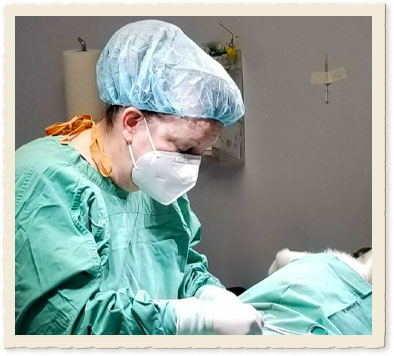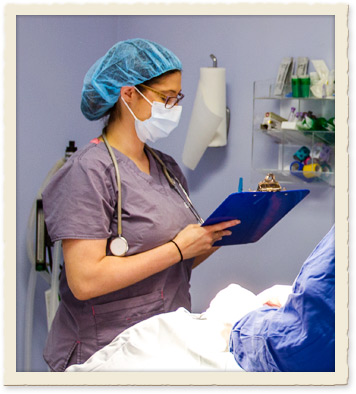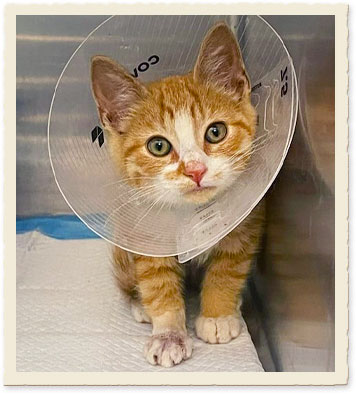Your Pet's Surgery
 Dr. Learman and the entire staff at MapleShade Animal Hospital will work hard to ensure each surgical procedure is thorough, completed with the utmost expertise, and is as stress-free as possible for both you and your pet.
Dr. Learman and the entire staff at MapleShade Animal Hospital will work hard to ensure each surgical procedure is thorough, completed with the utmost expertise, and is as stress-free as possible for both you and your pet.
At MapleShade Animal Hospital, we fully understand the decision to allow your treasured companion to undergo surgery is never easy. To that end, we are happy to answer any questions regarding your pet's surgery. In fact, a pre-surgical consultation is an essential part of the process. Additionally, our medical staff is happy to provide you with information on postoperative care to ensure a rapid return to your pet's happy, healthy self.
The doctors at MapleShade Animal Hospital have experience in performing a wide range of surgical procedures, including (but not limited to):
- Spays and neuters
- Oral surgery
- Gastrointestinal surgery
- Bladder surgery
- Amputations
- Tumor removals
- Eye surgery
Pre-Surgery Exam
Before your pet undergoes any surgical procedure, a thorough examination takes place. This exam includes a pre-surgical blood screen, which, along with your pet's anesthetic history, breed, preexisting conditions and age, will be used to determine a unique anesthesia protocol. These tests have the added benefit of establishing a baseline for the comparison of future blood tests, should your pet require any.
 Anesthesia
Anesthesia
At MapleShade Animal Hospital, our veterinarians can perform specialized cryosurgery and surgical laser removal of small masses without the need for anesthesia.
However, for many surgical procedures anesthesia is required. While under anesthesia, your pet is continuously monitored by our staff and specialized anesthesia monitoring technology. Your pet's blood pressure, heart rate, respiratory rate, body temperature, and oxygen level are all tracked during surgery. We also use a heated blanket to assist in maintaining a constant body temperature during the procedure.
Pain Management
Just as with humans, pain has many negative effects on pets that go beyond physical discomfort. Pain after surgery can slow healing and worsen diseases like arthritis, and because our companion friends don't understand why they are experiencing pain, pain can cause behavioral issues and interfere with the bond between you and your pet.
To minimize your pet's discomfort, we administer pain medication before surgery and typically use a combination of local anesthetics, nonsteroidal anti-inflammatory drugs (NSAIDs), and narcotic pain relievers thereafter. The exact protocol is tailored to each animal, and depends on a number of factors determined by the pre-surgery exam and during the procedure.
 Postoperative Care
Postoperative Care
The amount of time your pet will need to monitored after surgery varies. In some cases, animals will need to be monitored overnight; in others, they can be sent home the same day.
All our patients (with the exception of those suspected of being cancer-positive following a biopsy) are given post-operative laser therapy. All are placed in a "Hot Dog" warming blanket and have their vital signs monitored hourly in our post-op area with a friendly surgical technician.
When your pet is discharged, our doctors will provide you with information on proper home care after surgery. Often, your pet will be prescribed medication; in this case, we will explain how and when to administer it. We will also be available to answer questions after your pet arrives home. Contact us at (703) 670-7668 with any questions or concerns following surgery and we will be more than happy to help you.